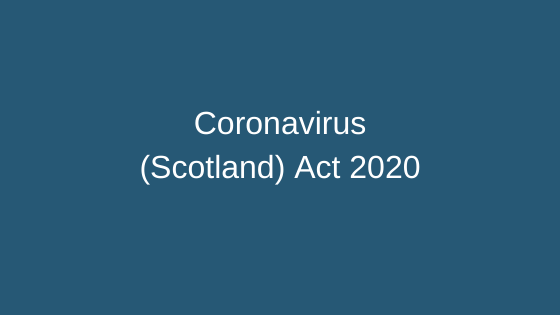
Expelling a Partner: The Need for Natural Justice
Date: 16/06/2020 | Dispute Resolution, Healthcare
This article looks at a recent case that acts as a reminder to partnerships of the importance of complying with the terms of a partnership agreement and fair procedure when expelling a partner.
Summary
- The Court of Session has found that a partnership was exercising a “quasi-judicial” function (i.e. like that of a court) when deciding to expel a partner, based on the terms of the partnership agreement and that this meant the partners expelling the other must adhere to the rules of “natural justice”.
- A decision to expel will likely be the exercise of a quasi-judicial function for most partnerships.
- When considering expulsion, the expelling partners should take legal advice to ensure that a fair procedure is adopted, in accordance with the partnership agreement and the rules of natural justice.
Background
The case concerned a dispute in a family-run partnership. The background is as follows:
- There were five partners: A, B, C, D and E.
- The relationship between A and B deteriorated, largely due to a dispute about A’s entitlement to money, which was drawn from the partnership (and gave rise to separate court proceedings).
- B proposed a partners/trustees meeting. B’s intention, not expressed to others at the time, was that the meeting would consider A’s expulsion.
- A was unable to attend the date but gave alternative dates.
- B did not want to wait for A and did not even wait for the proposed meeting.
- B asked two other partners, C and D, to vote on A’s expulsion 2 days before the meeting. They both voted in favour.
- A notice of expulsion was sent to A without any formal meeting or vote of the partners/trustees, and without notice to the trustees or to A that A’s expulsion was being considered.
- The partnership agreement provided that if a partner acted in any respect contrary to the partnership agreement or to good faith between partners, the other partners may expel the partner. In default of unanimous decision, they could do so by simple majority. This was the ground on which A was expelled.
Decision
The court held that the terms of the partnership agreement meant the partners were performing a role similar to a judge in deciding to expel. This is because the terms of the agreement required the partners to determine if they were entitled to expel A: i.e. it was a matter for consideration and decision. Because a quasi-judicial function was exercised, the rules of natural justice applied. The rules of natural justice include:
- The need to give the partner whose expulsion is proposed fair notice of the grounds for the proposed expulsion; and
- The right to be heard prior to any decision being made.
The court held, based on the terms of the agreement (although also related to the rules of natural justice), that all partners should have been consulted, including A. They should also have been given notice of the proposed expulsion. Even although it is the case that the partner whose expulsion is proposed will not usually agree with it, their position should be obtained on the ground of expulsion and whether expulsion should follow.
For these reasons, the expulsion notice issued to A was void.
Davidson Chalmers Stewart LLP has an established and market leading practice in partnership law, particularly in the healthcare sector. We can advise partnerships if the expulsion of a partner is being considered, or if you are a partner facing expulsion. Please contact our Dispute Resolution team or Healthcare team for further information.














































































